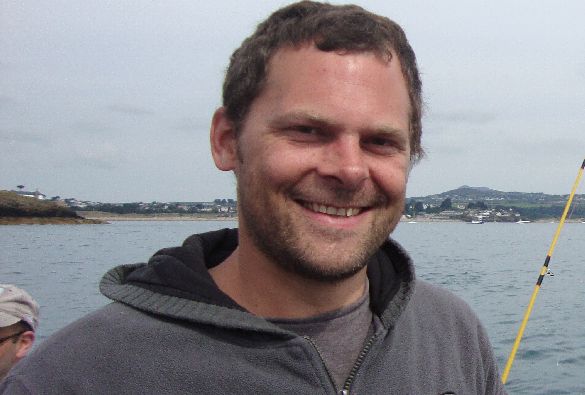Andy Wolski, Professor of Accelerator Science, pays tribute to Dr David Newton from the University’s Department of Physics and the Cockcroft Institute.
“I would like to pay tribute not only to David’s achievements as a scientist and as a teacher, but also to his approach to life that made him so popular with his friends, colleagues and students.
He was a wonderful person to work with, and all of us here have a deep sense of shock and sadness following his death. David’s way of looking at things and working towards a deep understanding often revealed ways forward that would otherwise have remained obscure
I worked with David on a number of different research projects at the Cockcroft Institute. All of our research here is connected in one way or another with particle accelerators; David had a background in a rather different field, having earned a reputation working on high-energy cosmic rays. He got to grips with accelerator physics with his customary enthusiasm, and his talent in this area became apparent very quickly.
Accomplished
One of David’s first tasks when he joined us at Liverpool was to calculate the detailed properties of the synchrotron radiation produced by a beam of high energy electrons in a 300 metre long ‘helical undulator’ magnet (for the positron source for the International Linear Collider). This was something that could not be done using existing computer codes. The code that David produced to accomplish the necessary calculations still has unique capabilities, and has found applications in many systems other than the undulator for the ILC positron source.
Much of David’s research over the past few years has been motivated by design studies for accelerators for high energy physics. This has included proposed upgrades for the LHC (such as the large hadron-electron collider, and a high-luminosity upgrade for the LHC), and the muon g-2 experiment now taking shape at Fermilab.
But expertise that David very quickly acquired in modelling the interactions between charged particles and electromagnetic fields has been of great value beyond the realm of high energy physics. In particular, David made significant contributions to projects at Daresbury aiming to develop sources of radiation ranging from the terahertz to the x-ray regime.
Valued team member
In all of these activities, David has been a highly valued member of the Cockcroft Institute not just because of his scientific and technical expertise and the fact that he could always be relied upon to carry out the planned work in a thorough and timely fashion, but also because his friendly and engaging personality always made it a pleasure to work with him.
David was appointed a lecturer in the Department of Physics at the University of Liverpool in 2012. Everyone who worked with him was delighted that he now had a permanent appointment, and, as a member of the Liverpool Accelerator Physics group, would remain working at the Cockcroft Institute.
Following his appointment as a lecturer, David’s role included a significant amount of teaching: most new lecturers find it difficult to balance the demands of their research activities with their teaching responsibilities, but David managed the transition in his usual manner, with quiet professionalism and an unfailingly positive attitude towards his new duties.
Dedicated teacher
He quickly proved himself as talented in his teaching role as in his research role, and became as popular with his students as with his colleagues. Just last year, David took the lead role on a key module for our second-year students, aimed at developing a range of skills including programming, data analysis, research and scientific communication.
I learned recently that an undergraduate student that David had supervised last semester for a final-year project had decided, on the basis of his experience with the project, to pursue a career in research. This came as no surprise to me at all; David would have ensured that his student achieved his full academic potential in the project, and at the same time enjoyed the whole experience.
The impact that David had in this case is just one more example of his skill in teaching and research and of his personal qualities that were so greatly appreciated by his colleagues and students alike.”
